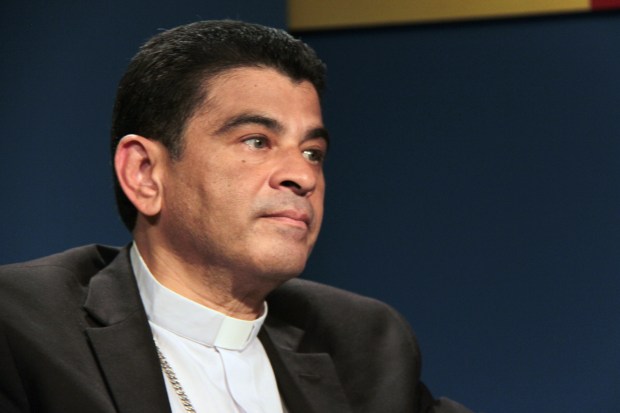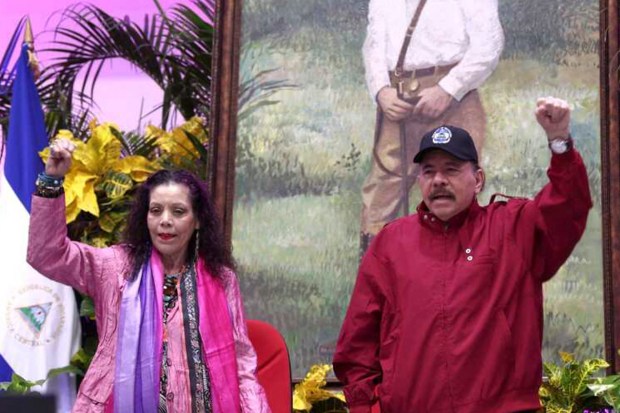Lenten Campaign 2025
This content is free of charge, as are all our articles.
Support us with a donation that is tax-deductible and enable us to continue to reach millions of readers.
The recent exile of 19 priests and religious from Nicaragua, including Bishop Alvarez of Matagalpa, arrested in August 2022 by the regime of Daniel Ortega, could be considered a sign of détente in Nicaragua. The bishop was happily received in Rome. But, instead, this exile reflects the desire of the Nicaraguan government to weaken and even destroy the Church in the country.
Aleteia interviewed Martha Patricia Molina, a Nicaraguan criminal lawyer in exile, about the situation.
Exiled clergy: victims of injustice but symbols of hope
Aleteia: Is the expulsion of 19 priests and religious from Nicaragua, among them Bishop Alvarez, good news and a symbol of "détente"? Or, on the contrary, does it reflect a desire to "rid" the country of priests and the Church?
Martha Patricia Molina: It has been a relief for the priests and bishops who were kidnapped [and held] in the prisons of Nicaragua, where more than 40 mechanisms of torture and cruel, inhuman, and degrading treatment are practiced. But it also provides tranquility for their relatives and all the people who have been praying for their liberation. The banishment of the clergy is a crime against humanity. They should be carrying out their pastoral life in Nicaragua, but it’s impossible for them to return while the Ortega-Murillo dictatorship continues in the country.
What does Bishop Alvarez represent in Nicaragua? A figure of opposition to the government of Daniel Ortega, a beacon of hope?
Molina: Bishop Alvarez and all the pastors who have had to flee or who are in the country resisting persecution are a symbol of hope, determination, and persistence in faith and in civic, religious, and human values. They are standing up before the dictatorship to protect the integrity of the people — not only Catholics, but also those who practice other denominations.

Multiple forms of persecution
What is the situation of the Catholic Church in Nicaragua?
Molina: The situation is evolving and periodically deteriorating. For the moment there are no more kidnapped priests. However, four universities have been confiscated and seven religious congregations have been expelled.
What forms of persecution does the Church suffer in the country?
Molina: Attacks, threats, profanation, theft, confiscation of goods, house arrest ... The persecution Church in Nicaragua suffers is multifaceted. Priests are under 24-hour surveillance. They must hand in their schedule of activities a day before they are to perform them. Otherwise the police can suspend or imprison them. They live under permanent siege.
Lay chapel administrators and readers of the word are also under threat. The personal bank accounts of priests, the Episcopal Conference, and parochial schools are blocked. The Church is under investigation for money laundering -- a crime which, logically, they have not committed.
All processions and activities of popular piety have also been banned. In Holy Week 2023 alone, more than 3,176 processions were banned. Masses to commemorate All Souls’ Day were also banned in public and private cemeteries.
This climate is pushing many priests into exile. Others are considering it very seriously under the weight of repression and death threats from the police and paramilitary organizations financed by Daniel Ortega's regime. Priests and their families are constantly receiving hate messages. These only encourage people close to the dictatorship to attack priests and vandalize churches, etc. They know that crimes committed against the Church will go unpunished.
Passive resistance
How does the "resistance" of Catholics in Nicaragua manifest itself?
Molina: The only resistance is constant prayer. The daily praying of the rosary, participation in Mass, and other activities that take place in churches. In spite of the police and paramilitary siege, the Catholic people continue to hold on to their faith and religious beliefs.

What does the Church represent for Daniel Ortega's government?
Molina: The Catholic Church is a pebble in Daniel Ortega's shoe. When he or his wife looks at a bishop or a priest, they don’t see a man of faith, but an armed soldier going to war. The Church is the worst enemy of the Ortega government.
And for the population?
Molina: Believers and non-believers alike have become closer to the Catholic Church, in solidarity. Moreover, Catholics haven’t abandoned the churches! They continue to attend Mass and actively participate in the life of their parish.
Although they are constantly monitored, they continue to resist through prayer. However, whereas a few years ago, prayer groups were open in churches, they now meet in private homes to avoid attacks or arrests.
There is more unity, more prayer, and fear is being overcome more and more.
Hope for the future despite difficulties
How do you think the situation will evolve in the medium term?
Molina: From what I have documented in my study "Nicaragua, a persecuted Church" during January 2024, I believe that the acts of aggression and attacks against priests and bishops will continue as long as the Ortega-Murillo dictatorship is in Nicaragua because the goal of the dictatorship is to completely annihilate the Catholic Church.
Over time the dictatorship has devised new ways to harm the Church. To this day they have not succeeded and I do not believe they will, but these attacks will have a lasting effect on the Church.
Can the Church make progress in Nicaragua?
Molina: Since the beginning of the protests against the Ortega government in April 2018, the Church called for dialogue. It also called on the dictatorship to cease all persecution and unjust killings, disappearances, and imprisonments, but the dictatorship has never taken it into account.
I believe that the Catholic Church is always open to dialogue and to serve as an intermediary for peace, but the dictatorship is not interested in negotiating with the Church. The only thing it seeks is to impose its ideals and to be recognized as a democracy at the international level.





